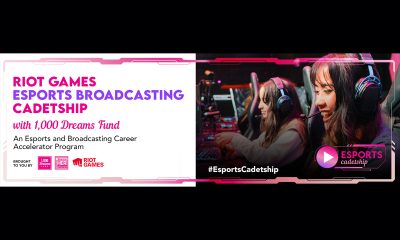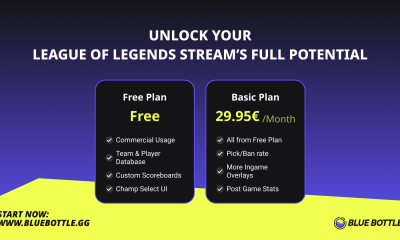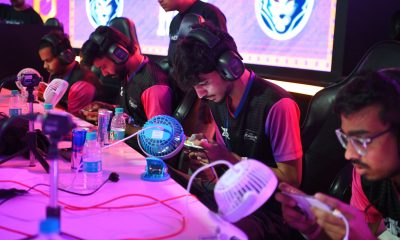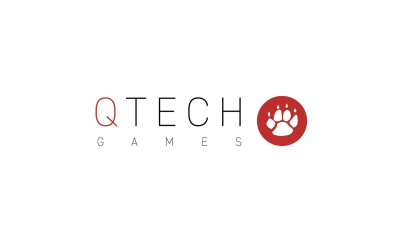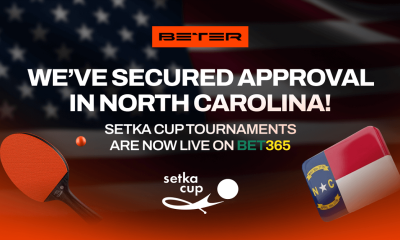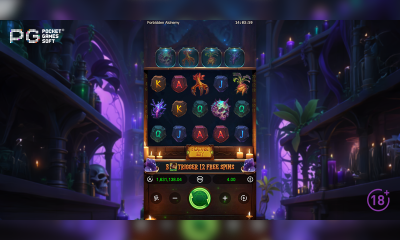eSports
eSports in the CIS region , Q&A w/ Viktor Block, Senior Sales Manager/PandaScore

Esports has long been popular in the CIS region, with various top-tier teams and players all calling it home. How has the landscape evolved over the last few years? Have any particular trends emerged that have surprised you at all?
Esports boomed in the CIS region in 2008 when Multiplayer Online Battle Arena (MOBA) games became really popular. While esports had been a thing as far back as 2003, the rise of games such as Counter-Strike and DOTA2 was a major catalyst for the upward trajectory the sector has been riding ever since. In recent years, the infrastructure needed to support esports has improved drastically across the CIS region, including the construction of the Pixel Esports Arena in Minks, Belarus, and the Cyberspace Arena in Almaty, Kazakhstan, both of which hold top-flight contests. Internet connectivity has also improved, while support from local and international sponsors such as Monster Energy, Red Bull and War Gaming have provided funds for further investment while also driving awareness. Ultimately, this has seen the landscape evolve into a thriving industry with lots of opportunities for further growth.
In terms of trends, and especially relating to esports betting, I’ve been surprised by the high demand for betting on console games – we call them eBattles and they include disciplines such as eSoccer and eBasketball. I think this is just a natural development that has occurred off the back of strong demand for video game content, which is often the bridge between traditional sports and esports.
What factors have contributed to esports’ growth in the CIS over the past few years?
One of the biggest factors for me is that teams have become more professional and are now training and playing in well-run clubs. This takes place in dedicated buildings and rooms, set up with high-speed internet and the absolute best gaming equipment. Player salaries have also gone up, which has increased the calibre of players taking part in contests across the region, taking competitiveness to the next level. Today, many CIS players now play for high-ranked teams such as Virtus.pro, Team Spirit, Betboom or Na`Vi which compete on the international stage. This in turn is helping esports grow across the CIS region.
Given how many countries are in the CIS region, can you walk us through some of the biggest regulatory differences when it comes to betting on esports? And how does PandaScore navigate these changes?
The legality of betting and esports betting differs from country to country within the CIS region. Some are super strict or even prohibit gambling, while others take a more liberal approach, regulating the activity and licensing operators. Let’s take a look at some of the biggest markets and their approach.
In Ukraine, esports has been recognised as a sport since 2018 and in 2020 the country regulated and licensed gambling for the first time. The law focuses mostly on standard betting – sports and casino – but is likely to also include esports betting given that esports is a recognised sport in the country with tier-one Ukraine sportsbooks like Favbet and Parimatch offering it to their players.
Kazakhstan has a growing gambling industry with betting shops and casinos operating in major cities such as Almaty and Nur-Sultan. Gambling is regulated by the Ministry of Culture and Sports and while the regulatory framework is somewhat restrictive, sports betting – which is likely to include esports betting – is permitted.
Navigating the constant changes in betting regulation across the CIS region can be challenging, so we make sure to keep up to speed with the latest developments by monitoring legislative updates and amendments to regulatory guidelines. We also track industry trends and best practices to anticipate regulatory changes ahead of time, allowing us to adapt quickly if needed. This can involve benchmarking against competitors, attending conferences and networking with key stakeholders.
In your view, are there any unique opportunities for the expansion of esports and esports betting within the CIS region? And how does this differ to other regions?
It’s important to understand that CIS, especially Ukraine and Kazakhstan, play by their own rules. By that I mean they are very different to other esports markets, so don’t think what works in Italy will work in Ukraine. For example, while League of Legends is very popular in Europe, in CIS, it’s Dota 2 that takes the top spot. But for those who can understand the region and each market, there are plenty of opportunities to explore.
Let me elaborate. Dota 2 is thriving in the broader CIS, with regular tournaments and events attracting large audiences both offline and online. teams like Natus Vincere (Na’Vi), Virtus.pro and Team Spirit have achieved significant success in Dota 2 competitions, contributing to the game’s popularity in the region. While Dota 2 is big, other video games also enjoy significant popularity, including CS2, World of Tanks and Fortnite among others.
Operators need to consider this when deciding their markets and odds, marketing strategies and plans for player engagement.
What would you say is the key to creating a successful esports product for a CIS audience?
Understanding layer preferences in each market and delivering an experience that exceeds their expectations. For the CIS region, this means focusing on Dota 2 – this is a game that offers deep and strategic gameplay requiring teamwork, communication and skilful execution of plans and strategies. Its competitive nature appeals to gamers as they enjoy the challenge of multiplayer experiences – this goes back to the original MOBAs back in 2008. These factors must be present in the esports betting experience offered to players – at PandaScore, this means a comprehensive Dota 2 offering that covers markets such as Kills, Towers, Roshans and Barracks, with players able to challenge themselves in a betting competition against others.
Support is also key to delivering a quality player experience. We offer round-the-clock assistance and are regularly rolling out updates to improve the experience players receive when betting on esports at sportsbooks using our data, odds and betting tools such as our Bet Builder. We are always working hard to expand our offering to cover the most in-demand games including CS2, Valorant, Call of Duty and many more.
What trends or developments do you anticipate shaping the future growth of esports in the CIS region over the next few years?
The industry will continue to grow and become more professional. Esports is different to traditional sports and it still lacks recognition in some markets, even though it is considered an official sport in a growing number of countries across the CIS region. I think as it evolves, more governments will provide more support for esports as it brings tremendous economic, cultural and social benefits. This could include funding for esports initiatives, rolling out regulatory frameworks, helping to foster partnerships with esports organisations or simply recognising it as a sport.
The continued proliferation of smartphones across the region will be a further catalyst for esports growth. Titles such as PUGB Mobile, Free Fire and Mobile Legends: Bang Bang will attract large audiences and provide new opportunities for teams, players, sponsors and other stakeholders to explore. This is a really exciting time for esports and esports betting in the CIS region, and PandaScore is thrilled to be part of it.
The post eSports in the CIS region , Q&A w/ Viktor Block, Senior Sales Manager/PandaScore appeared first on European Gaming Industry News.
1000 Dreams Fund
Riot Games and 1000 Dreams Fund Expand Talent Pipeline in Esports Broadcasting, Accepting Two New Cadets to their Specialized 2026 Program
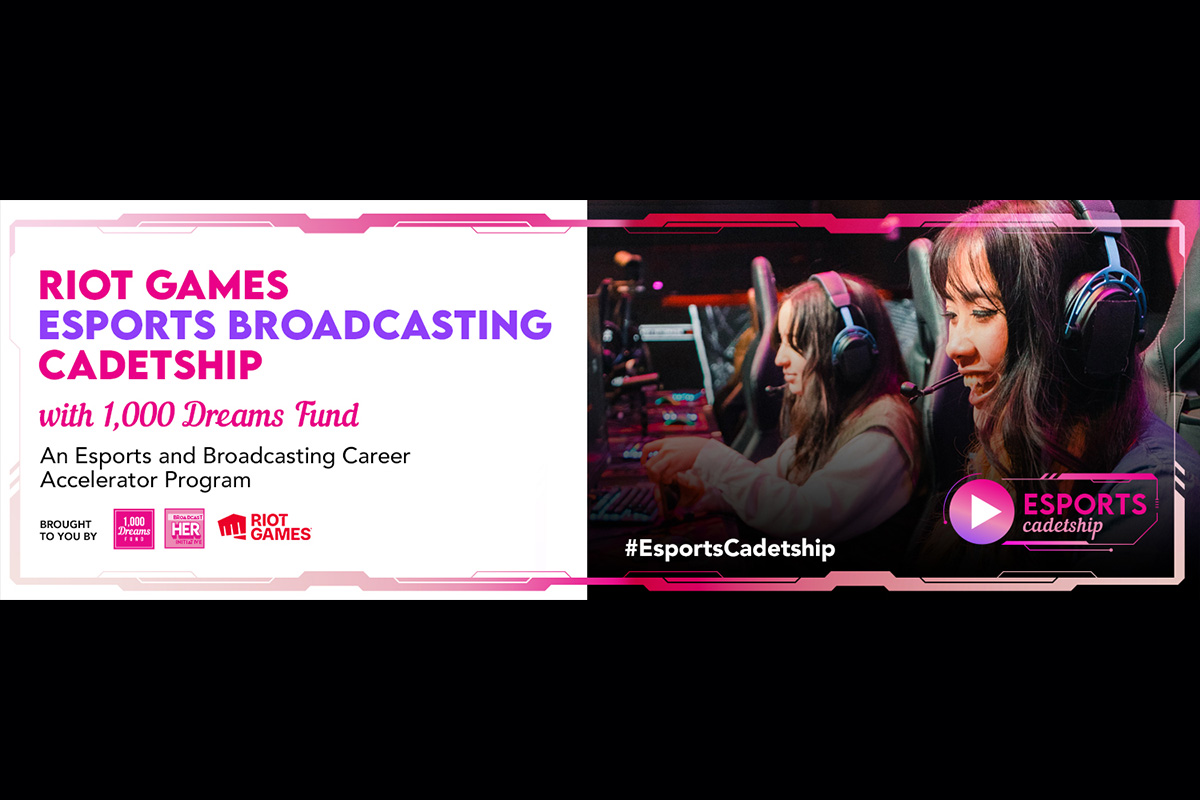
1000 Dreams Fund (1DF), a nonprofit that empowers talented women and students in need with scholarships, mentorship and other critical resources to help them reach their dream careers, has announced that two new cadets have been selected to its 2026 Riot Games Esports Broadcasting Cadetship at Riot Games’ Remote Broadcast Center (RBC) powered by AWS in Seattle.
The cadets selected for the three-month, paid cadetship position are:
• Marissa M. – Indiana University Bloomington
• Kevin D. – University of North Florida
The cadetship program runs in partnership with Riot Games—a leading video game developer, publisher and esports tournament organizer—and their global partner, AWS. Together with 1DF, the partners are committed to expanding access and creating pathways for individuals aspiring toward a career in esports broadcasting and production.
“We’re excited to host the Esports Broadcasting Cadetship in our Seattle Remote Broadcast Center for the first time. This facility has revolutionized how we produce esports at scale, and the Esports Broadcasting Cadetship brings that innovation to life by connecting emerging talent directly to the future of the industry. Through our partnership with 1000 Dreams Fund, we’re not only investing in today’s talent but also building a pipeline of leaders equipped to shape what comes next in global esports production,” said Allyson Gormley, Global Operations Director, Esports Broadcast & Production for Riot Games.
As Gen Z and early-career professionals increasingly rethink traditional career tracks, demand continues to grow for hands-on, skills-driven roles that offer clear pathways into competitive industries. In response, innovative workforce programs are materializing to bridge the gap between aspiration and opportunity, prioritizing real-world experience over linear career models.
The Riot Games Esports Broadcasting Cadetship exemplifies this new model of workforce development in emerging fields. Launched in 2023 as part of 1000 Dreams Fund’s broader commitment to workforce access and equity, the program was built to meet this moment — long before non-traditional career pathways became a mainstream conversation. By placing early-career students inside a global esports operation, the Cadetship provides a proven pathway, offering the training, mentorship and live production experience needed to launch careers in esports broadcasting.
“This year marks 10 years of 1000 Dreams Fund building programs that create real access to opportunity for students and early-career talent. The Riot Games Esports Broadcasting Cadetship reflects the kind of long-term, impact-driven work we’ve been committed to since day one, and in a time of deep transition in the workforce, these programs are more important than ever. We’re proud to continue expanding pathways, especially within emerging industries, that help students turn ambition into lasting careers,” said Christie Garton, founder and CEO of 1000 Dreams Fund.
For the selected cadets, this investment creates immediate momentum and removes common barriers to entry while positioning participants for long-term growth in a highly competitive field.
The post Riot Games and 1000 Dreams Fund Expand Talent Pipeline in Esports Broadcasting, Accepting Two New Cadets to their Specialized 2026 Program appeared first on Americas iGaming & Sports Betting News.
Berlin Gaming Industry
Tom Achsel Joins FACTORY-C to Spearhead “Home of Indies” Communications

FACTORY-C, the Berlin-based communications powerhouse specializing in gaming and esports, has announced the appointment of Tom Achsel as Event Communications Manager. Achsel will join the “Home of Indies” team alongside project initiator Christiane Gehrke, focusing on the platform’s global expansion and upcoming presence at Gamescom 2026.
With over a decade of experience in the tech and gaming sectors, Achsel brings a massive professional network and deep operational expertise to the agency.
A Veteran of the Berlin Gaming Scene
Tom Achsel is a well-known figure in the German development community. His career highlights include:
-
Games Academy: Served as Head of Marketing & Events at one of Europe’s oldest game development institutions.
-
Games Ground Berlin: Co-founded and led communications for the Berlin Gaming Festival, curating impactful B2B programs and speaker lineups.
-
IGDA Berlin: Serves as Vice-Chairman, strengthening ties between local developers and the global gaming ecosystem.
 Christiane Gehrke, Senior Event Communication & Sales Manager at Factory-C
Christiane Gehrke, Senior Event Communication & Sales Manager at Factory-C
“Tom knows the indie scene from multiple perspectives and has a sharp understanding of the needs of indie developers,” said Christiane Gehrke, Senior Event Communication & Sales Manager at FACTORY-C. “He brings everything needed to support the continued development of Home of Indies.”
Scaling the “Home of Indies” Platform
Since its debut in 2022, Home of Indies has grown into a central pillar of the Gamescom Indie Area. The platform provides a shared booth for independent developers, lowering the barrier to entry for international studios.
-
2025 Growth: The booth expanded to 440 square meters, featuring over 50 games from a dozen countries.
-
New Features: The project recently added a dedicated Spotlight Stage, streaming booths, and professional networking areas via MeetToMatch.
As Event Communications Manager, Achsel will lead the outreach strategy for Gamescom 2026, ensuring that the creative diversity of the global indie scene receives maximum visibility among press, influencers, and players.
The post Tom Achsel Joins FACTORY-C to Spearhead “Home of Indies” Communications appeared first on Eastern European Gaming | Global iGaming & Tech Intelligence Hub.
BlueBottle
BlueBottle Launches “League Broadcast” SaaS for Streamlined Esports Production
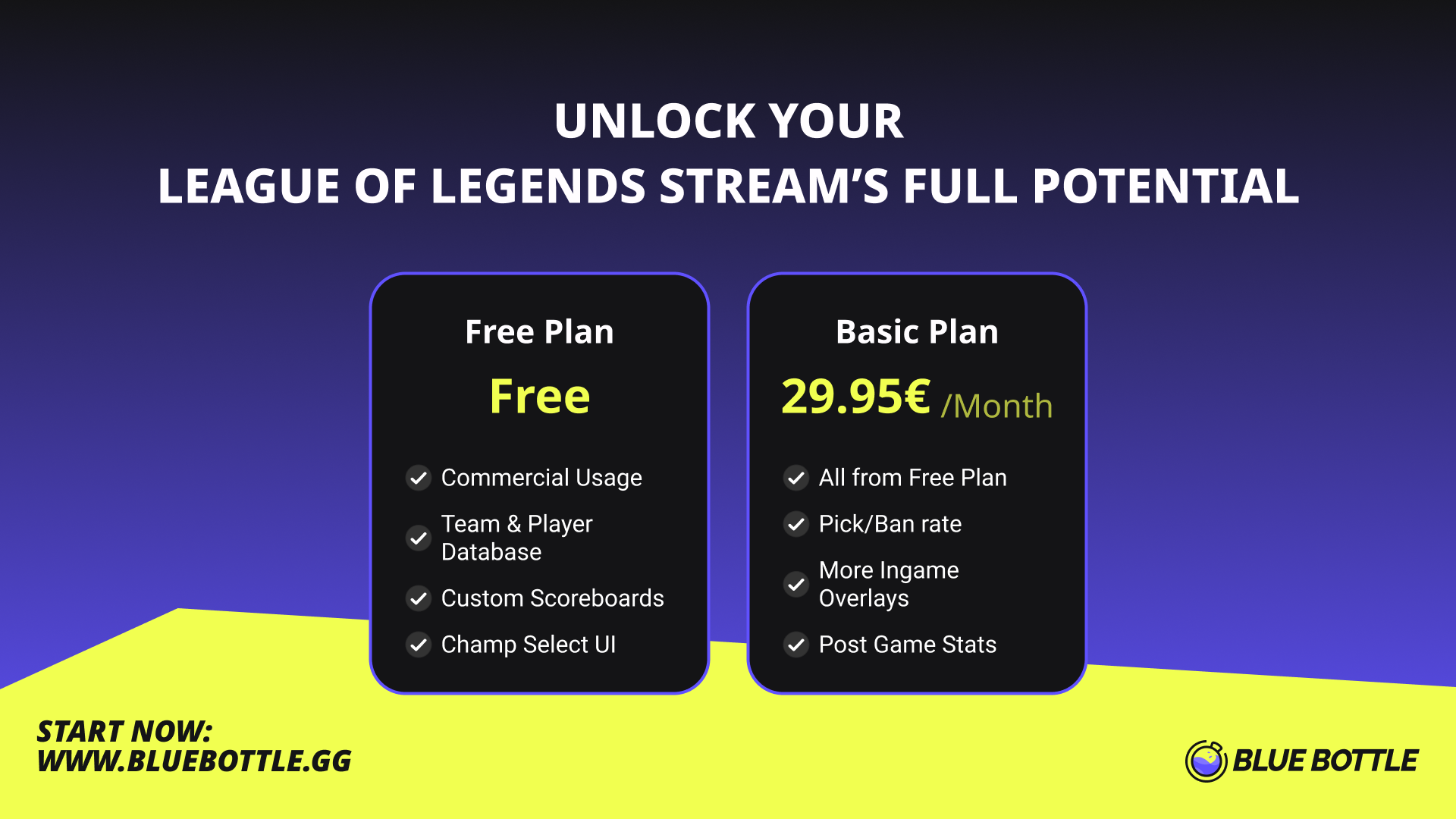
BlueBottle, the Munich-based esports technology innovator, has officially launched League Broadcast, its professional-grade production software, via a new Software-as-a-Service (SaaS) subscription model.
Announced on January 7, 2026, this B2C release moves the platform from selective partner deployments and its long-standing beta phase into a publicly accessible tool for leagues, tournament organizers, and individual content creators worldwide.
Professional Broadcast Tools for All Tiers
League Broadcast is designed to automate and elevate the visual storytelling of competitive gaming, specifically targeting the League of Legends ecosystem. The software bypasses traditional API limitations by using low-level game data collection to provide real-time, high-fidelity visualizations.
At launch, BlueBottle has introduced a tiered pricing structure to suit different operational scales:
| Tier | Status | Key Features | Target Audience |
| Free | Available | Core overlays, essential team/player data, basic game stats. | Grassroots creators & amateur streamers. |
| Basic | Available | Commercial usage rights, customizable pre-game elements, professional draft tools. | Semi-pro leagues & small event organizers. |
| Pro | Coming Soon | Advanced analytics, event-driven automation, premium production tools. | Professional leagues & high-scale live operations. |
Supported by Creative Europe Media
The transition to a scalable SaaS model was significantly bolstered by funding from Creative Europe Media, the European Union’s flagship program for the audiovisual and creative sectors. This backing allowed BlueBottle to invest in:
-
Enhanced Stability: Hardening the software for 24/7 live environments.
-
Improved Infrastructure: Faster development cycles and dedicated customer support.
-
Accessibility: Lowering the barrier for European creators to produce “broadcast-quality” content that competes with high-budget international productions.
“This launch represents more than a new pricing model — it’s the moment League Broadcast becomes accessible to the wider esports community,” said Lars Eble, CTO at BlueBottle. “We were able to invest in long-term product quality… ensuring that our B2C customers receive the same level of reliability previously reserved for large partners.”
Strengthening the European Esports Ecosystem
By providing affordable, automated tools for real-time data visualization—such as dynamic gold graphs, inhibitor timers, and 3D in-world branding—BlueBottle is positioning itself as a core infrastructure provider for the digital media age. The platform allows smaller organizations to monetize their formats more effectively through professional-looking sponsor placements and deeper viewer engagement.
The post BlueBottle Launches “League Broadcast” SaaS for Streamlined Esports Production appeared first on Eastern European Gaming | Global iGaming & Tech Intelligence Hub.
-

 Carl Gatt Baldacchino Head of Account Management SlotMatrix4 days ago
Carl Gatt Baldacchino Head of Account Management SlotMatrix4 days agoSlotMatrix revives classic slot action with Crazy 777 U.S launch
-

 Adam Pentecost Chief Revenue Officer at Gaming Corps5 days ago
Adam Pentecost Chief Revenue Officer at Gaming Corps5 days agoGaming Corps partners with BetMGM for exclusive Ontario launch
-

 BGaming4 days ago
BGaming4 days agoLand Diamond-Encrusted Prizes in BGaming’s Jewel Boom Super Drop
-

 Africa4 days ago
Africa4 days agoSoccabet goes live with QTech Games retail solution in Ghana
-

 BETER4 days ago
BETER4 days agoBETER enters sixth US state with North Carolina approval
-

 Forbidden Alchemy3 days ago
Forbidden Alchemy3 days agoPG Soft mixes magic and sorcery to create potent Forbidden Alchemy slot
-

 Edvardas Sadovskis CPO at ICONIC214 days ago
Edvardas Sadovskis CPO at ICONIC214 days agoSit with the Warriors: Vikings Wild Feast by ICONIC21
-

 Compliance Updates3 days ago
Compliance Updates3 days agoRomanian B2B Licence Granted to iGP, Boosting Its Regulated Operations in Europe



